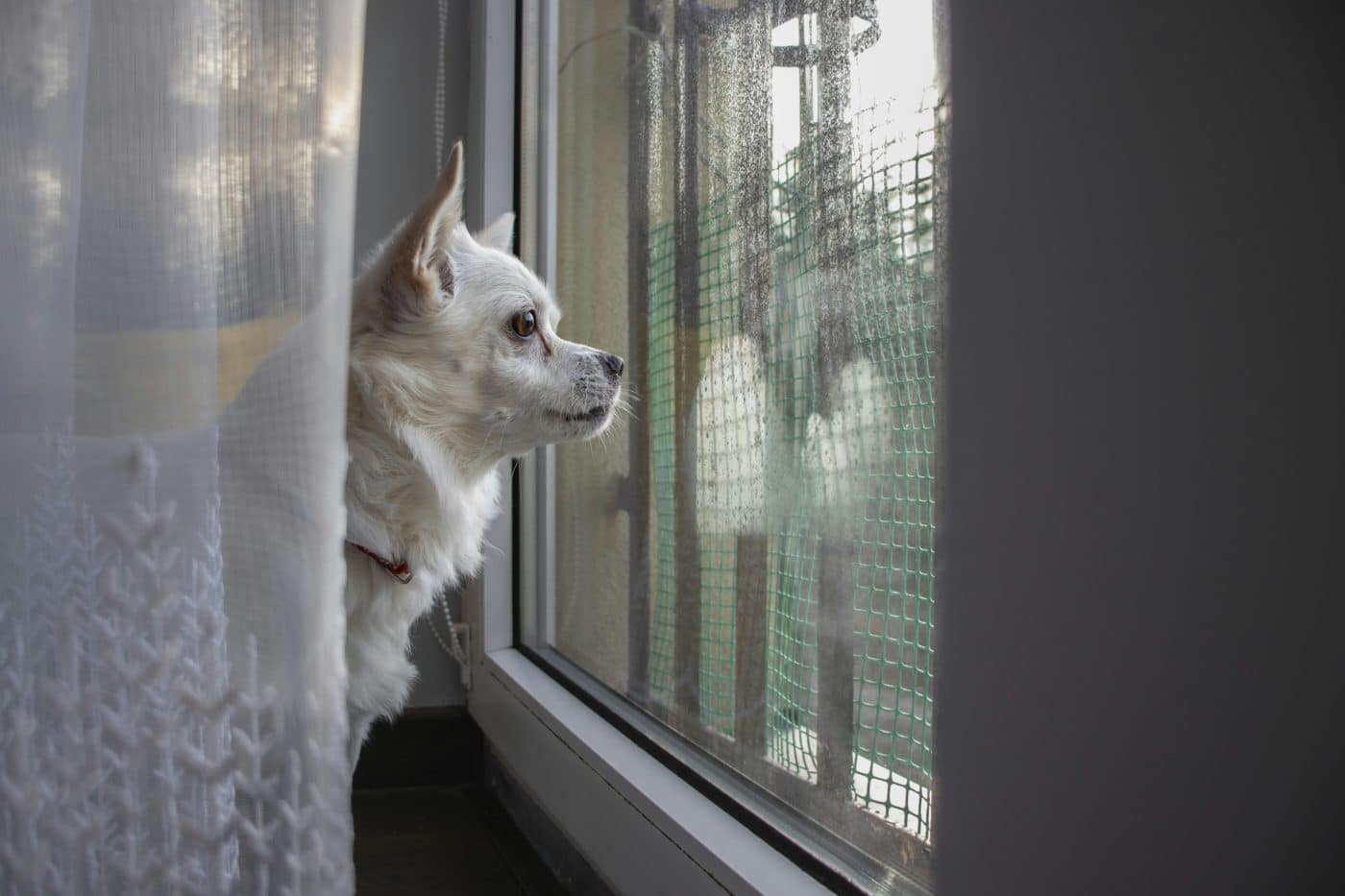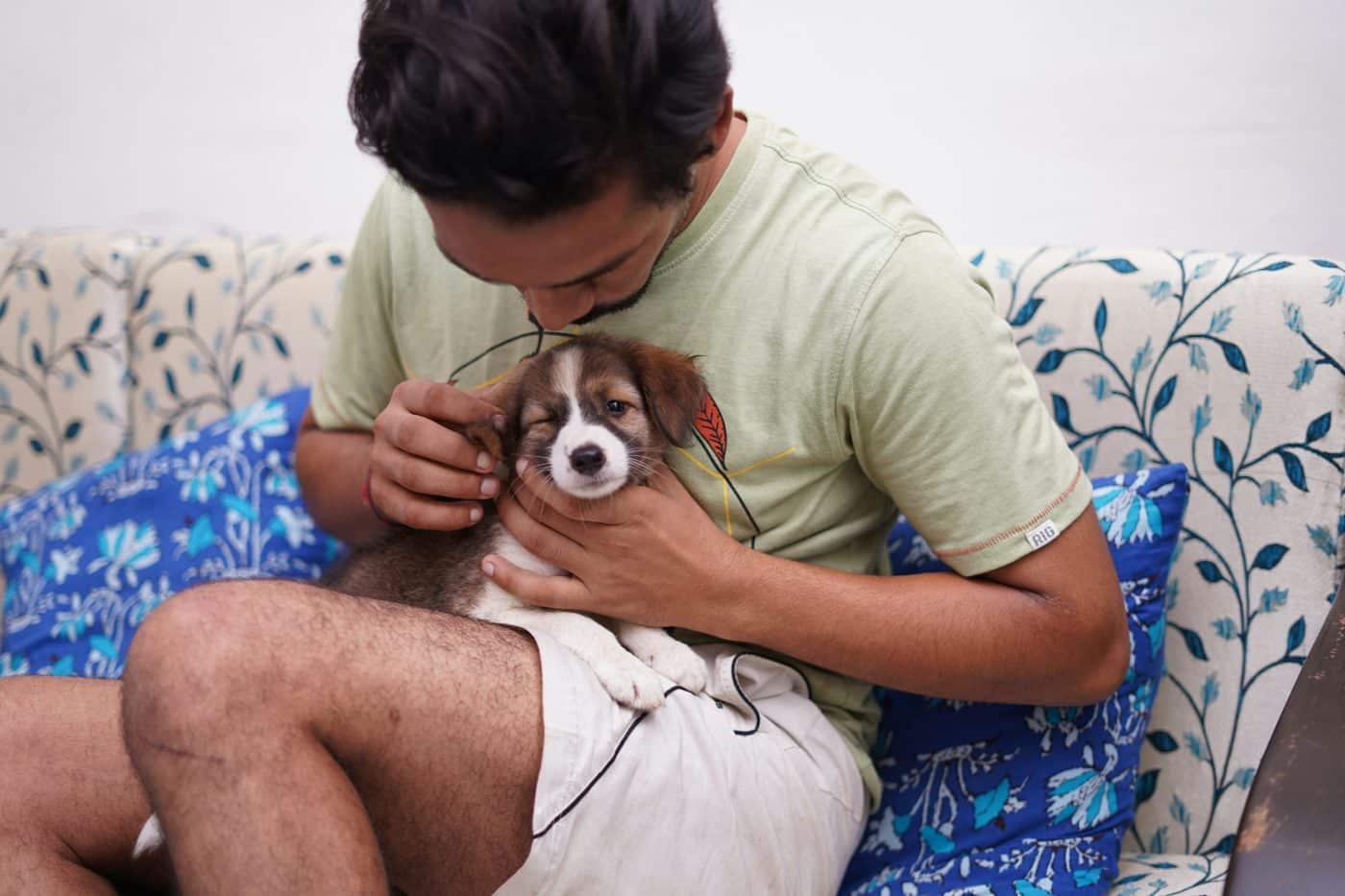Shutterstock
When a normally cheerful and predictable companion begins performing in a different way, it may be each complicated and regarding. Sudden habits modifications usually point out that one thing isn’t proper, starting from minor discomfort to a extra severe subject. There are a lot of potential causes for these shifts, and understanding them might help in offering the fitting help. Noticing these indicators early ensures a way of safety, consolation, and total well-being. Being attentive to even the smallest modifications could make an enormous distinction in sustaining happiness and a wholesome, balanced life.
Feeling Beneath the Climate

Shutterstock
Similar to people, pets can really feel unwell with out displaying apparent indicators of sickness instantly. A sudden change in vitality ranges, consuming habits, or basic temper may point out discomfort or an underlying well being subject. Even one thing so simple as an upset abdomen or delicate an infection would possibly make them appear withdrawn or irritable. If unusual habits persists, a vet go to might help rule out any medical issues.
Anxiousness or Stress Is Taking Over

Shutterstock
Sudden modifications in routine, loud noises, or unfamiliar environments can create stress. Anxiousness could trigger pacing, extreme licking, hiding, and even harmful habits. If one thing has modified lately—like a transfer, a brand new member of the family, or a loud thunderstorm—they could simply be overwhelmed. Offering a peaceful, acquainted house might help ease their stress and restore their regular habits.
Hidden Harm or Ache

Shutterstock
Not all accidents are apparent, and a few pets are good at hiding discomfort. A limp, sensitivity when touched, or reluctance to maneuver may imply there’s an damage you haven’t seen. Even a small muscle pressure or sore paw pad could make them act in a different way. In the event that they instantly resist sure actions or appear unusually cautious, a better look could also be wanted.
Feeling Lonely or Bored

Shutterstock
An absence of psychological and bodily stimulation can result in odd behaviors. With out sufficient train or engagement, a pet could begin performing out by chewing, barking excessively, or pacing. Modifications in sleep patterns or a sudden lack of curiosity in toys can be indicators of boredom. Including extra playtime or interactive actions might help convey again regular habits.
A Change in Weight-reduction plan or Consuming Habits

Shutterstock
Sudden shifts in meals sort, meal occasions, or treats can have an effect on digestion and temper. Some pets react negatively to new components, resulting in abdomen discomfort or uncommon habits. Even lacking a meal or consuming too shortly could cause non permanent misery. Maintaining a tally of consuming habits and introducing dietary modifications step by step can forestall pointless tummy troubles.
Concern of One thing New

Shutterstock
A innocent object in the home could seem terrifying from a unique perspective. A brand new piece of furnishings, a wierd sound, or perhaps a hat you’ve by no means worn earlier than would possibly trigger nervous reactions. In the event that they instantly keep away from sure rooms or cower at on a regular basis objects, worry might be the trigger. Providing reassurance and optimistic reinforcement might help them regulate.
Sensing a Change within the Family

Shutterstock
Pets are extremely perceptive and may choose up on feelings and modifications inside the residence. If there’s pressure, disappointment, or pleasure within the air, they could react accordingly. New relationships, a member of the family leaving, or perhaps a change in work schedules can disrupt their sense of stability. Protecting routines constant and giving them additional reassurance might help ease the transition.
Experiencing Cognitive Modifications

Shutterstock
As pets age, cognitive operate could decline, resulting in confusion or altered habits. Forgetting acquainted instructions, wandering, or seeming disoriented might be early indicators of cognitive decline. Senior pets might also expertise disrupted sleep patterns or elevated anxiousness. Offering psychological stimulation and veterinary help might help keep cognitive well being.
Overwhelmed by Too A lot Consideration

Shutterstock
Whereas affection is necessary, extreme consideration can generally really feel overwhelming. If they begin avoiding petting, shifting away, or performing pissed off, they could simply want slightly private house. Some pets favor impartial moments, and respecting these boundaries can enhance belief. A stability of interplay and alone time ensures they really feel comfy and safe.
Reacting to One other Animal Close by

Shutterstock
An unfamiliar scent or the presence of one other animal can set off uncommon habits. Whether or not it’s a stray exterior the window or a brand new pet in the home, they could act in a different way in response. Restlessness, barking, or performing territorial might be indicators that they’re reacting to a perceived intruder. Gradual introductions and reassurance might help them really feel extra comfy.
Modifications in Sleep Patterns

Shutterstock
A sudden shift in sleep habits—like sleeping an excessive amount of or pacing at night time—may point out discomfort or anxiousness. Restlessness at night time may be on account of an underlying well being subject or a change in routine. Loud noises, a brand new sleeping association, and even weight loss plan modifications can affect sleep high quality. Guaranteeing a snug sleeping surroundings might help restore regular relaxation patterns.
Response to a Current Vet Go to or Medicine

Shutterstock
Some pets really feel uneasy after a vet go to, particularly if that they had vaccinations or a medical process. New medicines may trigger delicate uncomfortable side effects, resulting in non permanent modifications in habits. They could want time to readjust if they appear off after a check-up. Monitoring for any regarding signs and offering consolation might help them settle again into routines.
Adjusting to Seasonal or Climate Modifications

Shutterstock
Shifts in temperature, humidity, and even daytime can have an effect on temper and vitality ranges. Some pets turn into extra energetic in cooler climate, whereas others favor heat. Storms, robust winds, or excessive warmth could trigger discomfort or nervousness. Creating a comfortable surroundings that fits their preferences might help maintain them comfy.
The Thriller Of Unusual Conduct Solved

Shutterstock







